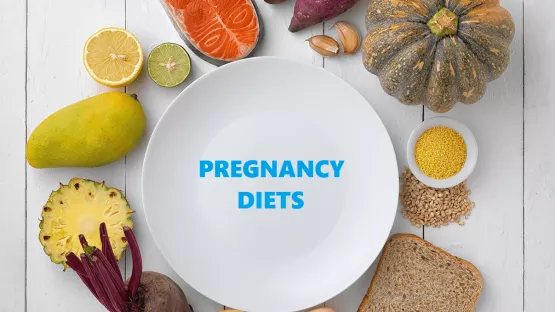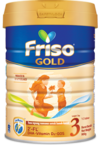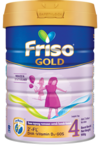3 Recipes For Mums-To-Be For Each Trimester
Meal planning is not the easiest job, we decided to put together three.... read more

The moment you find out your pregnant is indescribable; you discover that your child is growing inside you, and a future full of love and surprises lays ahead. As your body changes and nourishes your developing child, it’s important to ensure that you’re getting all of the nutrients necessary for the both of you. Read on to learn more about what to eat during pregnancy in order to ensure that you stay healthy and your child’s growth and development is optimal.
Nutrition Guide During Pregnancy
As you may well know, pregnancy doesn’t always come without setbacks and symptoms. Morning sickness, fatigue and fluid retention can make the entire duration of your pregnancy challenging to bear. So while you may try to eat healthy, nausea can suppress your appetite, and pregnancy itself can negatively affect digestion. However, it is crucial that you get enough of the right nutrients to help ensure a healthy and comfortable pregnancy.
If nauseous, stick to bland flavours, and eat small amounts of food frequently. Consuming B Vitamins—such as Vitamin B6—has been seen in studies to reduce nausea and give you a boost of energy during pregnancy, and prebiotics as well as probiotics keep your gut healthy. Don’t forget lots of fibre to keep your bowels moving regularly, too!
If you constantly feel tired, magnesium helps reduce fatigue and plays a crucial role in energy metabolism and tissue formation. Feel like your memory is slipping? Don’t worry, “preggy-brain” is definitely real. Water-soluble choline helps support your brain and nervous system by helping build an essential neurotransmitter called acetylcholine, which plays a role in memory and muscle control.
Recommended Food for Every Trimester
Trimester 1
1) Spinach, broccoli, peas and kale
Green veggies like these are often high in folate, which helps prevent your child from developing neural tube defects such as spina bifida in your first trimester.
2) Beans
Pinto, lima, borlotti, black-eyed and kidney beans are high in folate, iron and fibre. You can even add some dressing and make a bean salad that’s easy to eat on the go.
3) Melons and oranges
Ripe honeydew, galia and cantaloupe are high in folate and beta carotene. The same goes for oranges, satsumas, tangerines and clementines, so dig in!
4) Cheese on toast
Dairy products are good sources of vitamin A, so if you’re not lactose intolerant, top some wholegrain toast with cheddar, cream cheese, mozzarella or even cottage cheese.
5) Hard boiled eggs
Eggs are rich in vitamin A, folate and iron. Make sure to boil for about 7 to 8 minutes to ensure that they’re fully cooked.
Trimester 2
1) Milk
A glass of milk is packed with calcium and magnesium, both of which are especially crucial in your second trimester as it helps the development of your child's bones and teeth.
2) Plain yoghurt
Unsweetened yoghurt is a great, calcium-rich snack. You can also try Greek yoghurt with a little fresh fruit like kiwi, raspberries and blackberries, all of which are high in magnesium.
3) Dark chocolate
Surprisingly, dark chocolate contains magnesium, potassium, iron and calcium. Feel free to indulge in a couple of squares from time to time, but don’t overdo it!
4) Sunflower and pumpkin seeds
If you want a quick boost, a handful of sunflower and pumpkin seeds will give you some magnesium, iron and omega-3.
5) Hummus
For a tasty treat that’s packed with calcium, iron and magnesium, snack on some hummus with wholegrain pita or raw veggies.
Trimester 3
1) An assortment of fruits
During your third trimester, vitamin C, fibre, vitamin K and thiamine (vitamin B1) are especially important. Eat an assortment of fruits such as guavas, avocados, kiwis, and oranges to help you through your last few weeks of pregnancy.
2) Lentils
Lentils contain thiamine and fibre, so make it into a soup, stew, or even top a salad with cooked lentils to get your fix.
3) Baked beans on toast
Not only is this packed with thiamine, it also contains fibre which can alleviate constipation during pregnancy.
4) Brussels sprouts
They might not be popular, but brussels sprouts contain vitamin C and vitamin K. Steam them or add them to stir fries, but make sure to not overcook them so as to preserve their goodness.
5) Seeds and Nuts
Sunflower seeds, walnuts and hazelnuts are all rich in thiamine. But if eating them on their own isn’t your thing, you can also consume them in breads, breakfast cereals, cereal bars and muesli. Just make sure there’s no added sugar first!
Food to Avoid
1) Spicy and fatty foods
Certain dishes may set your taste buds aflame, but that burning sensation can travel down to your tummy and trigger pregnancy-induced indigestion and heartburn.
2) Caffeinated drinks
Just like your favourite spicy and oily foods, caffeinated drinks can also trigger indigestion and heartburn during pregnancy, leaving you in discomfort for hours afterwards.
3) Too much fluid
While you should always stay hydrated during your pregnancy, consuming too much fluid with an overabundance of food can aggravate heartburn. Try drinking before or after you eat instead.
Vitamins You Require for Every Trimester
1st Trimester
Your child’s brain needs a substantial amount of folic acid (Vitamin B9) to develop their brain and nervous system, and broccoli is a great source. Folate helps with normal blood formation and function of the immune system, and it is essential to maternal tissue growth during pregnancy.
Cheese is also a great addition, as it contains Vitamin B6 that also contributes to the normal functioning of the nervous system, the immune system, as well as in the formation of normal red blood cells.
2nd Trimester
This period of growth focuses on your child’s bones and teeth, so you need lots of calcium and Vitamin D—both of which can be found in food like walnuts and dark, leafy greens. Also, spinach and fish are high in Omega-3 fatty acids, which are necessary for brain development.
3rd Trimester
During this final stage, the focus will be on you. Keep your energy levels up with lots of leafy veggies as they contain Vitamin K, which helps blood to clot and aids in rapid healing post-delivery.
If indigestion and heartburn aren’t a problem, you can also be generous with chillies and hot spices as they contain lots of Vitamin K as well. If you’re ever in doubt, you should always consult your primary healthcare provider before making any dietary changes just to be on the safe side. Remember, making smart food choices doesn’t just help you during pregnancy; it can also help give your child a healthy start in life!


